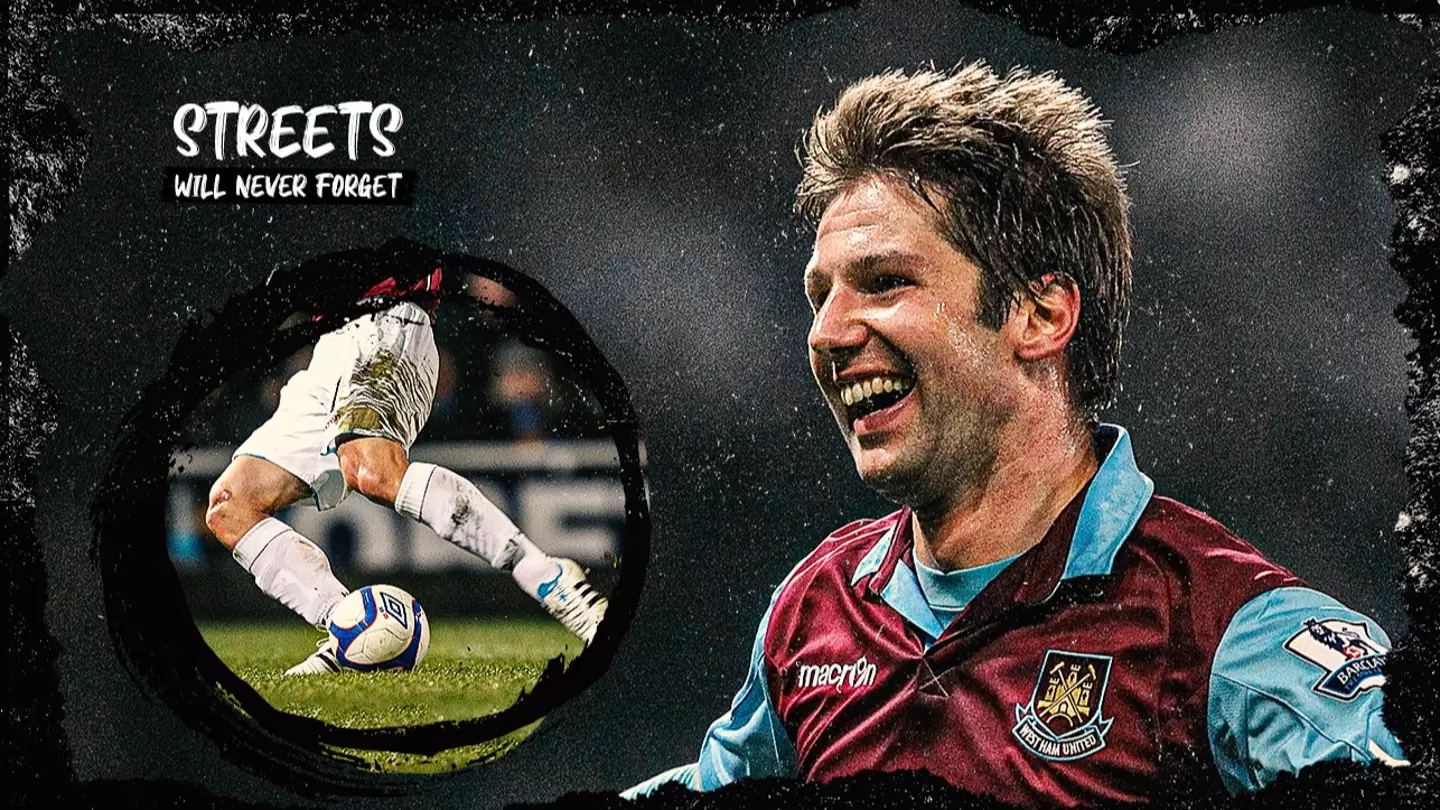
To be honest the phrase 'Streets will never forget' has always baffled me. What streets? Who aren't the forgetting?
So being tasked with interviewing a footballer who fit the profile wasn't going to be easy.
I obviously Googled a list of the top names who usually get that moniker but already Michu and Morten Gamst Pedersen were gobbled up by two of my colleagues.
Advert
Then it hit me, I AM THE STREETS! I'm the writer, I get to choose who hasn't been forgotten and for me that player is, was and always will be Thomas Hitzlsperger.
Der Hammer as he came to be known.
In my mind there was barely a week that went by that the German didn't hit a beautiful goal from long range, in truth it wasn't that often but the beauty of technique mixed with brutality of power that he could put behind a shot made him an iconic player of the early 00s.
Hitzlsperger arrived in England as a teenager to sign for Aston Villa after completing his football education with Bayern Munich.
I obviously wanted to know about how he developed the shooting that would earn him his nickname and even before it came up the 41-year-old revealed his goalscoring was what first caught Bayern's attention when he was only seven.
"I scored almost all of the goals that we scored and it was just obvious that I was very talented," he humbly bragged on why the Bundesliga giants signed him.
Advert
"I could hit it hard. You know, that's something that was always with me, you know, I just probably inherited it from my dad. He had a very powerful shot as well.
"So it was obvious, not just the goal scoring ability but also the strength and the power that I had at any age group I was in.
"I think as far as I can remember as a couple of times when I you know, hit the goalkeeper in the face and he would just lie down flat and you know, one of those things but I wasn't Der Hammer back then nobody mentioned it."
On how it became such a weapon to him and what he became known for, Hitzlsperger added: "I always had a powerful shot.
Advert
"But it's that combination, you know, you go abroad, and people look at you. And it was always said at the beginning, I've got a powerful left foot and a powerful shot.
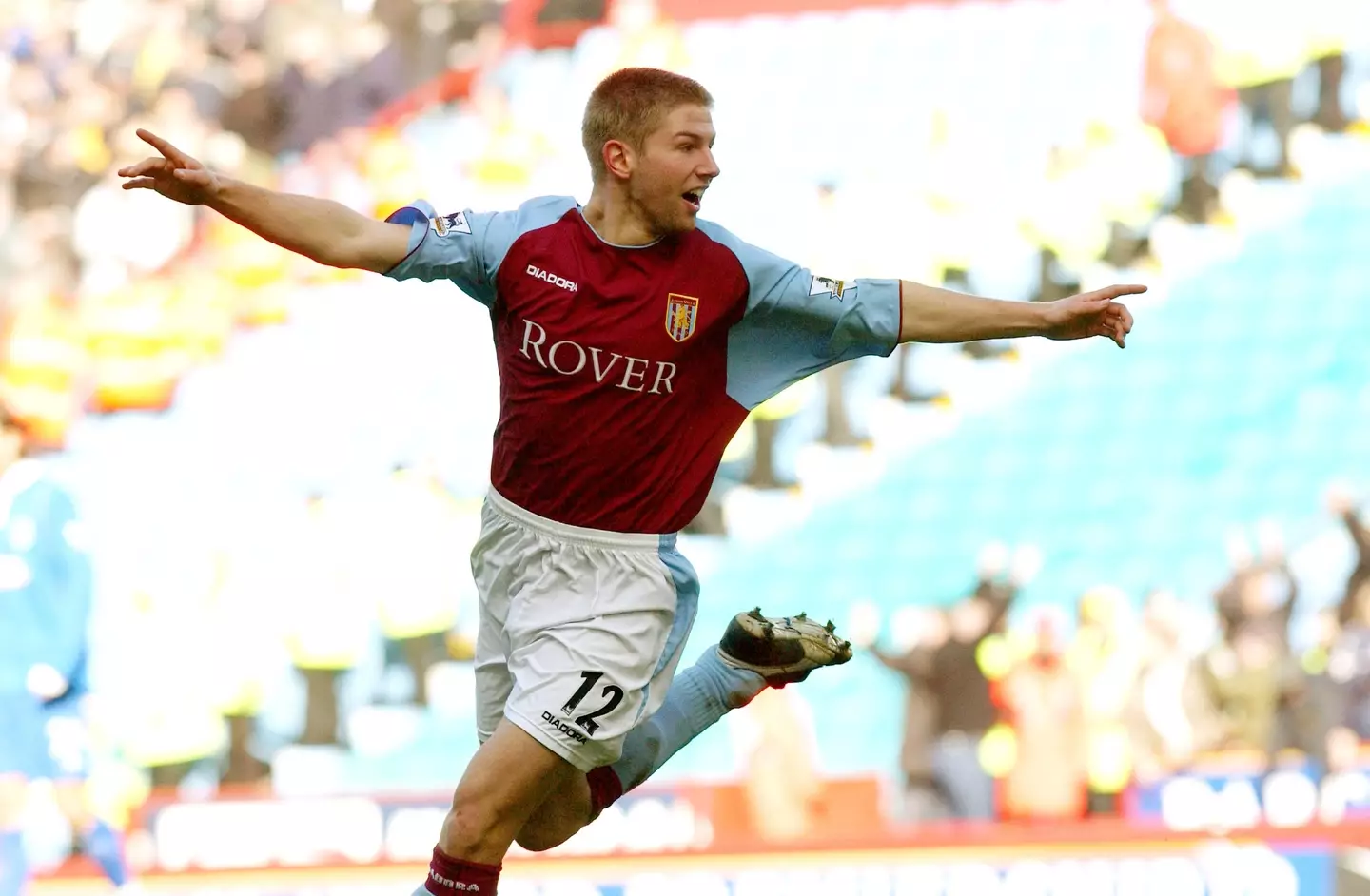
"And then when you prove it on the pitch you hit them from long range, and eventually it goes in. And that's the beauty of English football fans, they come up with good ideas. And I don't know who started it [the nickname] first, and then the name came up Der Hammer. And I just loved every bit of it, the creativity of the fans, put things together and it makes you enjoy it even more.
"I kept hitting them from long range. And it was fun. It wasn't just fun for me, the fans liked it. But had to be sensible as well, of course, can't take a shot every time you get on the ball."
Advert
The former midfielder loved the nickname and it helped him get used to life in England better. "I also you know, because I was so young playing in England, I wanted my family back home to know what was going on.
"And suddenly, when it happens, you have that nickname and people here in Germany take notice of it. And it's a story to tell and it puts you in people's minds."
"Every footballer I would argue wants to stand out whatever way and to have such a positive in my opinion, a positive nickname, you know, what's not to like about it? So I enjoyed it. And of course, I tried to keep up with it and always deliver as often as possible."
- READ MORE: Michu exclusive: "I wake up in so much pain every day"
- READ MORE: Morten Gamst Pedersen exclusive: "Would I sign for Wrexham? Of course I would"
Advert
Shouts from the crowds to shoot inevitably followed him whenever the ball fell to his feet outside the box and that certainly served as more encouragement.
"Of course I heard it, you know, everybody heard it. And it was kind of a joke as well. And that's the part that I really enjoy.
"It's something you can joke about, and it puts a smile on your face. But you've got to perform.
"You hear it, but you've got to put it aside and say what's the best solution every time I'm on the ball. But when it came together, I had the opportunity to shoot and went in it's like, brilliant in those are the moments that people remember those moments that I remember. And therefore, I have a lot of good memories."
Villa clearly saw something in a young Hitzlsperger to encourage him to move to Birmingham and he was made to feel like first team football was more likely there than at Bayern.
However after a few months with the club and having played just six months in his first season, he was sent on loan to League One Chesterfield for a short spell.
The player certainly wasn't expecting to be there. "I never thought I would go out on loan because that loan system doesn't exist in Germany," he explained.
"And when I first experienced it, when players told me or when I saw the players going out on loan, I thought this would not be for me, because you know, I'm from Bayern Munich, they wouldn't send me out a loan to a third division team or something.
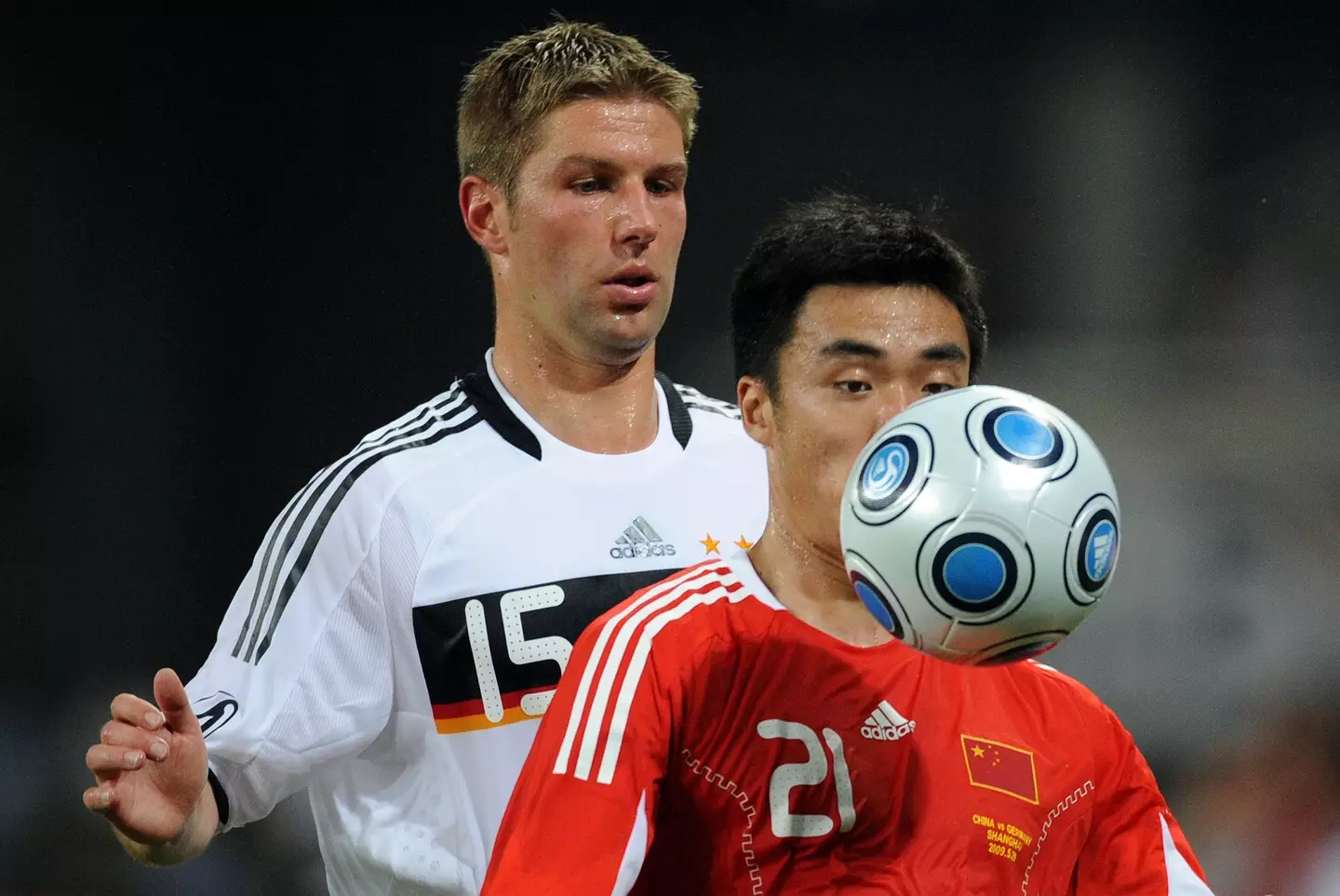
"Then I was approached by my reserve team manager, Kevin Macdonald at that time and my teammate, Stefan Moore was also loaned out to Chesterfield. And Kevin said, ‘Look, this is what you need now, men's football, not just reserve football, men's football in a competitive league.’
"I was really nervous going there - new dressing room, you don't know anybody there. But I did it. And I trusted Kevin's advice. And it was phenomenal.
"Really, it was just great from day one. Because something I never expected and suddenly you're there and you think this is my opportunity to show that I'm good enough to play in men's football and make a difference.
"And the manager or the management team at Chesterfield, they liked me, I would say from day one. I played six or seven games and I loved every second of it because it was such a different experience. And yeah, I got gametime. And proper English football, as they say."
Clearly the German had a great attitude to playing in the lower leagues and felt like it was a chance to prove himself. "You say to yourself this is what it takes to get to the top, you're being tested," he added.
"You got to prove that you're good enough. It's not just playing in the third division and say, ‘Well, I'm a big player, and I don't have to prove anything,’ you have to do it.
"And as I said, it's always easier when you feel welcome, which was the case at Chesterfield, and then being on the pitch getting game time.
But I remember playing at Cardiff, with Rob Earnshaw, and their team, so it wasn't just small grounds. We played some big teams.
"Like I said, I had a dream to play Premier League football and that was a way to it. And again, everybody at Chesterfield was extremely kind and pleasant. And it was a very valuable experience for me."
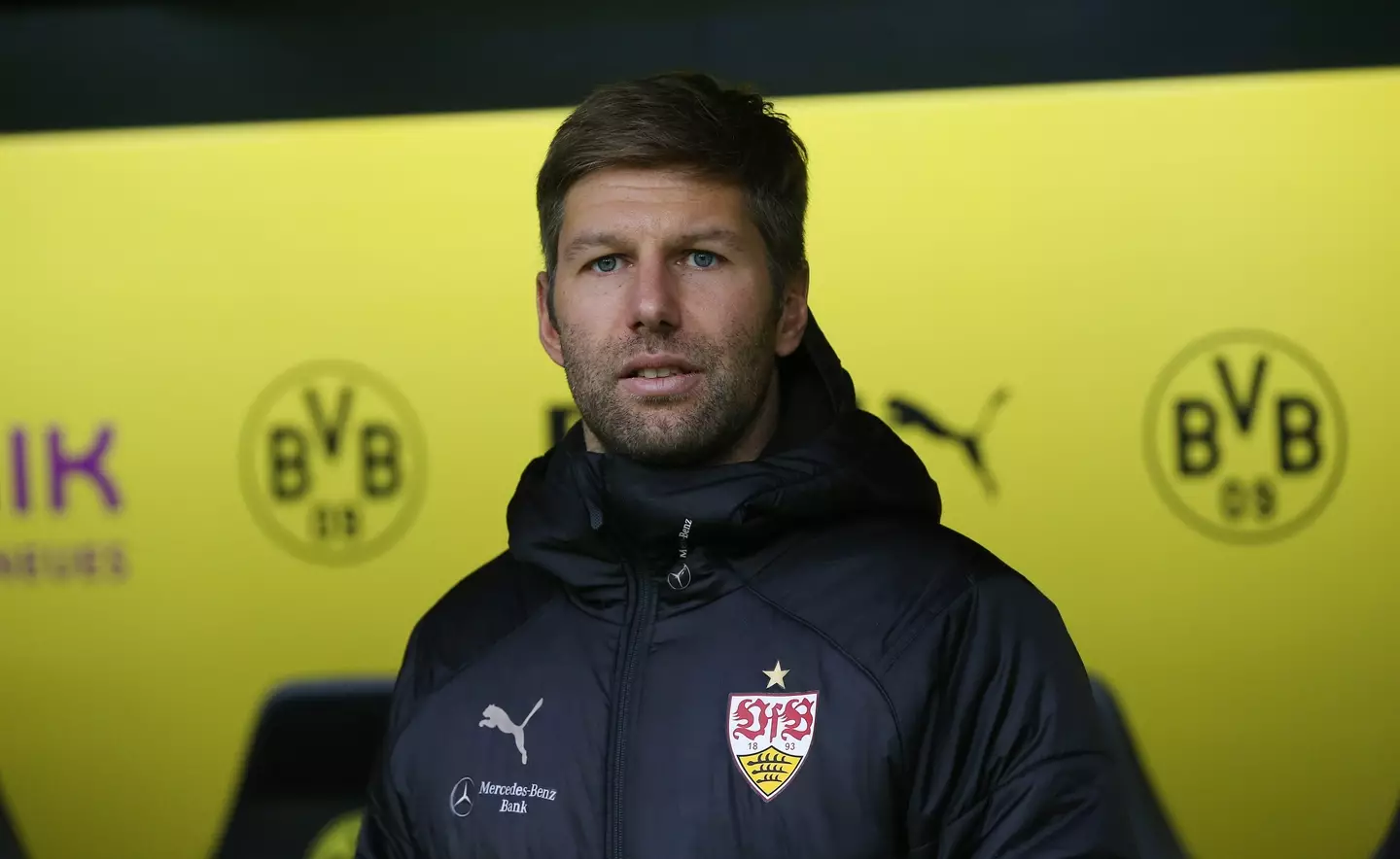
Whilst Kevin MacDonald had a positive effect on his career, Hitzlsperger didn't have such a good relationship with all his managers at Villa Park.
John Gregory didn't appear to want to play him but then the manager was gone in March 2002 and replaced by Graham Taylor, who clearly liked the player.
"I had to thank him [Taylor] because he, you know, I kept on training week in week out, and John Gregory saw me and he didn't think I was good enough. And Graham Taylor comes in the next week and thinks, you know, this kid, he has what I want in my team.
"And that bit of luck I needed and he was that person to trust me, put me in. And then I delivered.
"So, I'm very grateful that he gave me the opportunity. And you could just tell with his experience that he brought in. He settled things down. It was a great privilege to play under him."
There were a lot of big personalities and characters inside the dressing room as he burst onto the scenes, with the likes of Dion Dublin, Paul Merson and David Ginola around.
England boss Gareth Southgate was also there for the first year and Hitzlsperger said the defender was someone he felt he could talk to.
"It was good to know that there was somebody you could always talk to," the former Germany player told us.
"He didn't see me as a competitor, of course, we played in different positions. But I think he had the empathy to say like, look, you're from abroad, if ever you need anything, you know, just talk to me."
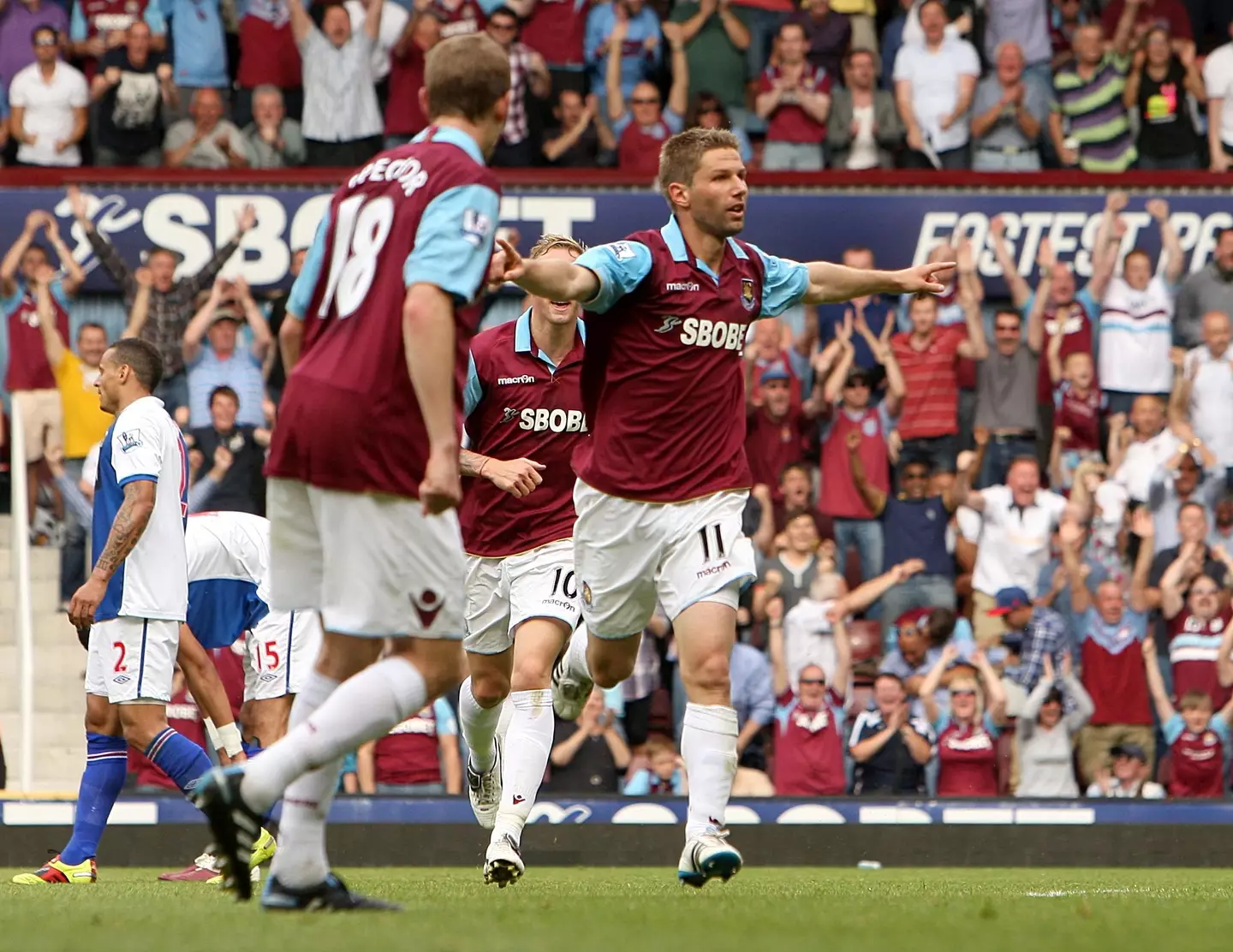
Hitzlsperger wasn't thinking about what the centre back might do in his future but wasn't surprised when he did become the Three Lions' boss: "When it happened It didn't surprise me. Of course, you know, he had all the ingredients in a top football player. Incredible human being, as I said, always showed that empathy, and those are the ingredients, you need to be a good manager.
"So I was extremely delighted and still am when I see him. I met him not too long ago, and it was great to catch up and, you know, have a longer chat with him. Really enjoyed that."
On the former England defender's empathy helping with the social issues England have faced in recent years, he added: "He's talking to people and when he talks about leadership, the way he looks after the players and takes responsibility, and there's always a big challenge, so he went through difficult phases, of course, on the pitch stuff when they weren't winning, but more the other aspects and protecting the players when they were attacked by fans verbally abused."
Whilst most of his experience in the Midlands was pretty positive, things actually ended on a pretty sour note for the former midfielder.
Villa headed to Anfield on the final day of the 2004/05 season with nothing to play for and with the German set to return to his home country once the campaign finished, with his contract up.
He had played 99 Premier League games by that point but was denied making his century, despite the fact that his family had come to watch him.
"You would hope that the manager is aware of it. And he does, because I think we had nothing to play for. So it wouldn't have made a big difference. But it was his decision not including me in the squad. So I was frustrated.
"I had family come into the game, and everyone was looking forward to it. And suddenly you have to tell them, 'Look, I'm not even on the bench.'
"And that's hard to digest, as I said, but then life goes on. And I did manage to be successful after that as well."
Certainly he's not bitter about how it ended, adding: "I don't have any regrets. It wasn't a pleasant finish to my time at Villa. But it’s just something you have to deal with.
"I wasn't in the squad against Liverpool, for the last game, at Anfield and I wish I had been given the opportunity to just play one more game, but it wasn't going to be. And I had to deal with it.
"But overall, it was five years living in Birmingham, and having experienced every bit of it. I was very grateful. Because I made a lot of friends. I managed to get into the first team, played Premier League football, became a full international for Germany. So I had so many good memories."
He did eventually return to England to play for West Ham United and Everton though those periods certainly didn't work out due to injuries.
His time at West Ham certainly left a good impression though and he said that the team 'deserved' their success of winning the Europa Conference League and was 'delighted' for them.
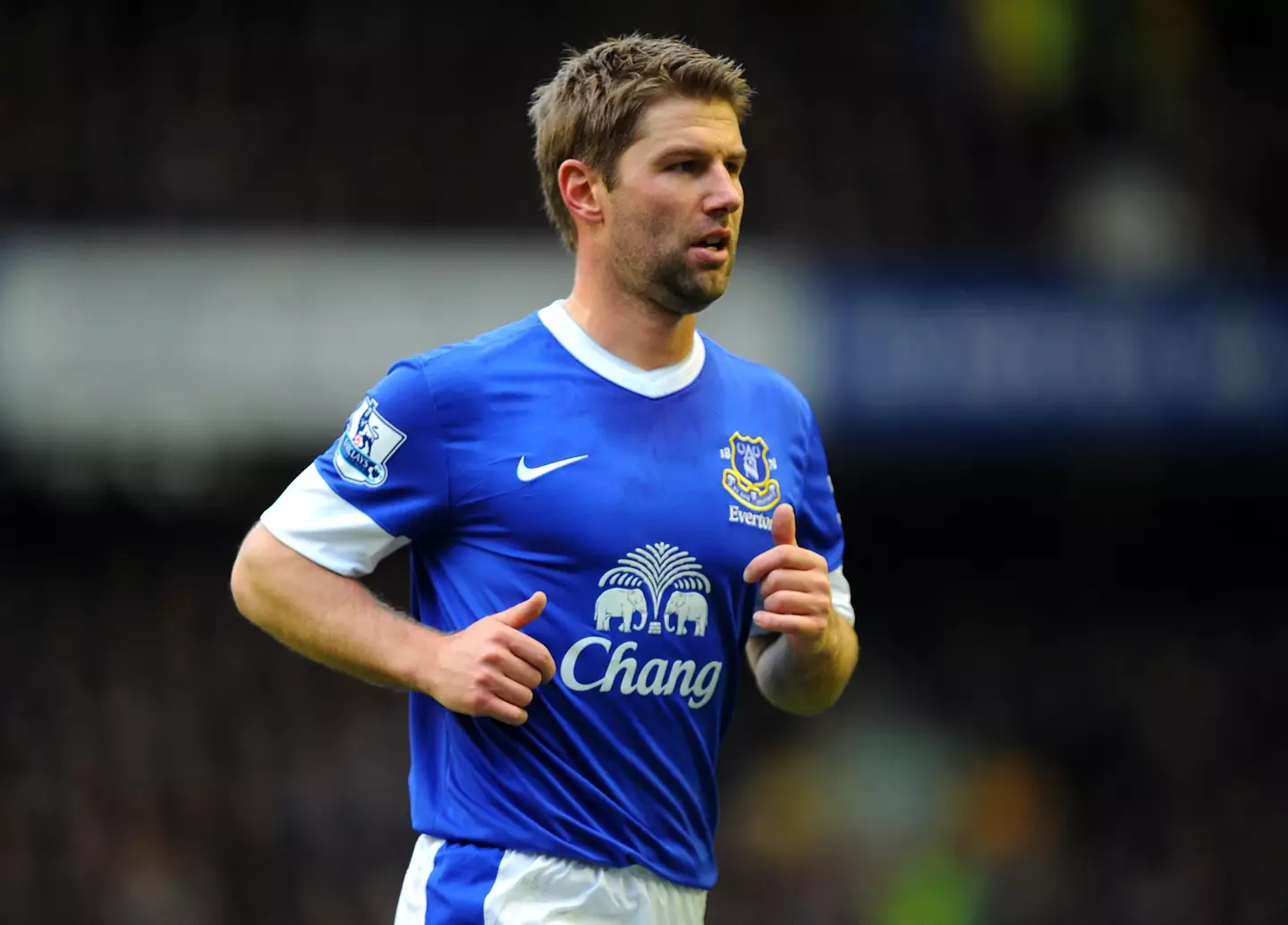
He called time on his career aged just 31 due to the injuries but it wasn't a difficult decision for him. "At the end of the season with Everton, I had to call it a day and say, look, I'm frustrated that the clubs I play for they don't get anything out of me. And I'm just ruining my body.
"And so it wasn't, that final decision wasn't too difficult. It was the last couple of years of my career thought, you know, this is really tough, and I work harder and harder and harder.
"But I spent more time at the physio in the gym, than on the pitch on a match day.
"You have to admit it to yourself, you have to deal with it, and either drop down a division or two, or just go abroad to some minor leagues.
"But that all for me was I'm just running away from the problem.
"My body's not being able to cope with it anymore. And of course, I didn't love it as much. I wasn't, you know, hungry enough anymore to really do everything. But even if you do, then your body tells you, it's your time's up.
"And that's where you have to realise and that's what happened."
Players may have had a longer lasting impact on the pitch in the Premier League than Hitzlsperger but few are remembered as fondly by their nickname.
It's a rare occasion when fans can bestow such a wonderful moniker on a player, for that reason alone the streets will never forget Der Hammer, and nor should they!
This is the third feature from SPORTbible's Streets Will Never Forget mini-series in which we hunt down some of the Premier League's most iconic names.
READ MORE: Michu exclusive: "I wake up in so much pain every day"
READ MORE: Morten Gamst Pedersen exclusive: "Would I sign for Wrexham? Of course I would"
Topics: Spotlight, Aston Villa, West Ham United, Everton, Germany, Premier League